Portraits
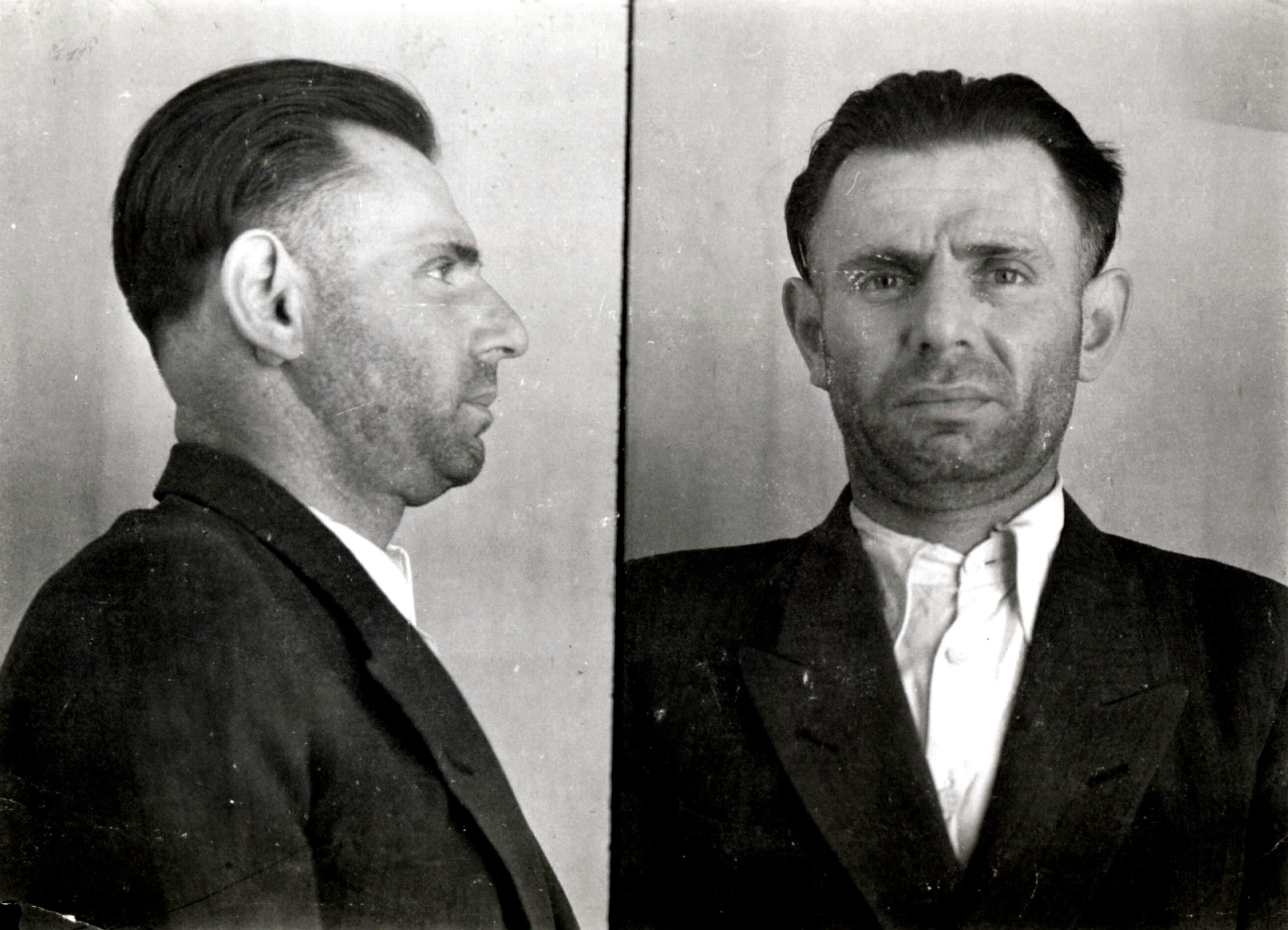
Studio and creditrmal portraits of families, children and Czarist soldiers
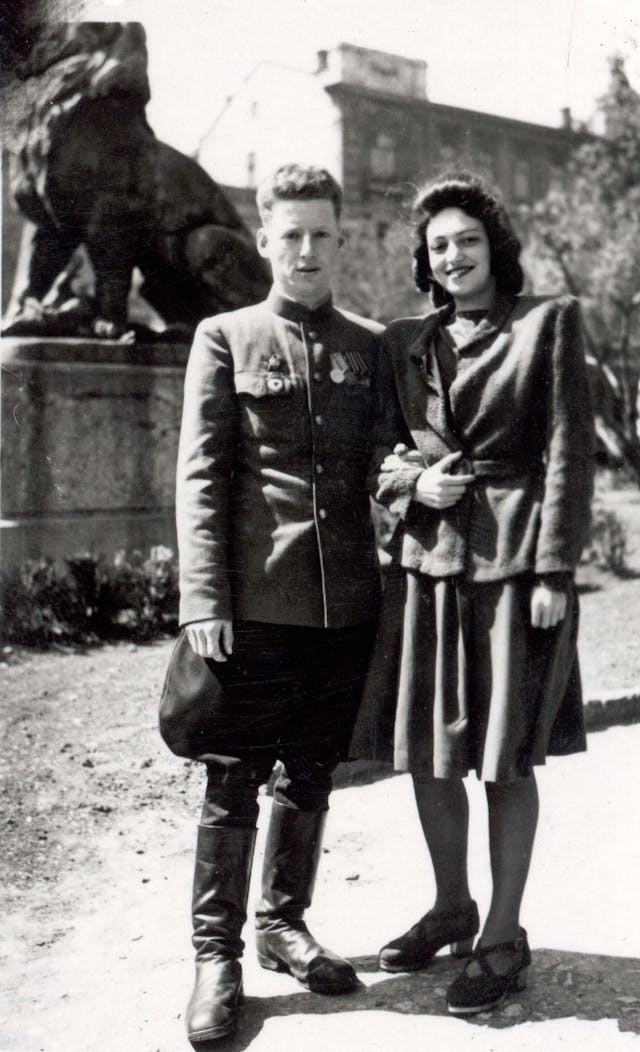
Arnold Fabrikant
Photo taken in: Odessa, 1947 Interviewer: Nathalia Rezanova
Me with my fiancée, Nathalia Yampolskaya. I am wearing my uniform because I did not have any civilian clothes. Nathalia is wearing her only suit and shoes with wooden soles. We are standing by the bronze figure of a lion in the town garden on Derybasivs’ka Street. In April 1946, I came to Odessa to meet with Nathalia. We had known each other since childhood. We registered our marriage on 1 May 1948.
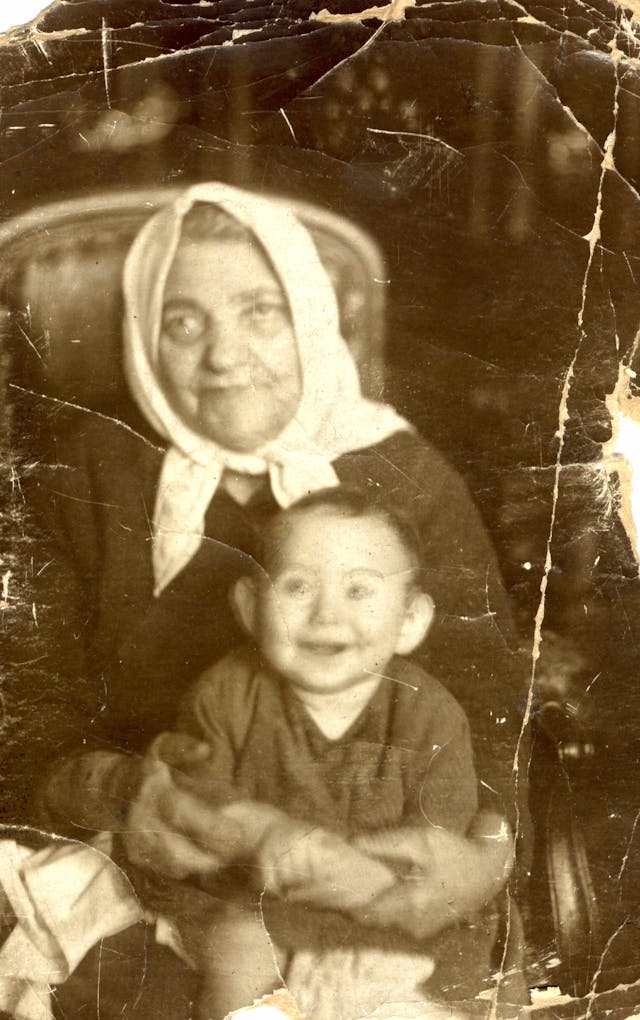
Ella Lukatskaya
Photo taken in: Kyiv, 1938 Interviewer: Tatyana Chayka
Me with my maternal grandmother Haya-Ita Smertenko. In the 1930s, only four of my grandmother’s 10 children were still alive. She lived in Kyiv with two of them: her son Max and my mother. All of us lived in one room. My grandmother helped my mother about the house. She died before Second World War. Her death rescued us. Had she lived longer, we would not have been able to evacuate during the war. We would have stayed in Kyiv and been killed in the Babyn Yar massacre.
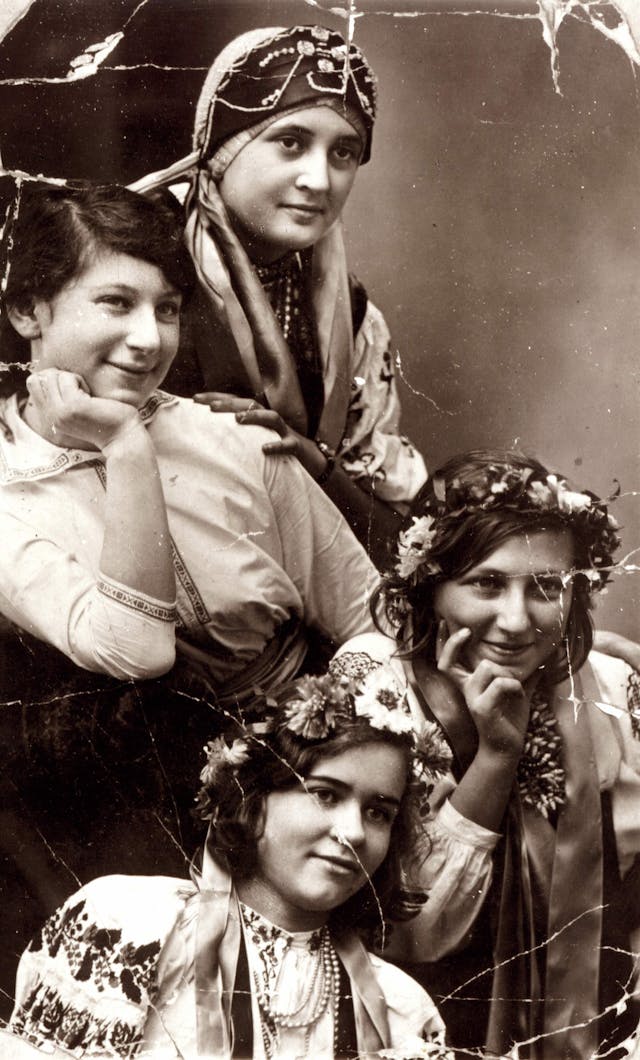
Emilia Kushnir
Photo taken in: Lvov, 1935 Interviewer: Unknown
Me, on the left with my chin resting in my hand, with three school friends. My childhood was a typical Soviet one—kindergarten, school, and war. My best friends were Russians.We were internationalists and did not care about people’s nationalities. We still have very good relationships with each other. Even though my friends and I were not interested in politics, we certainly knew about Hitler and “Kristallnacht.” There was information on it in the press.
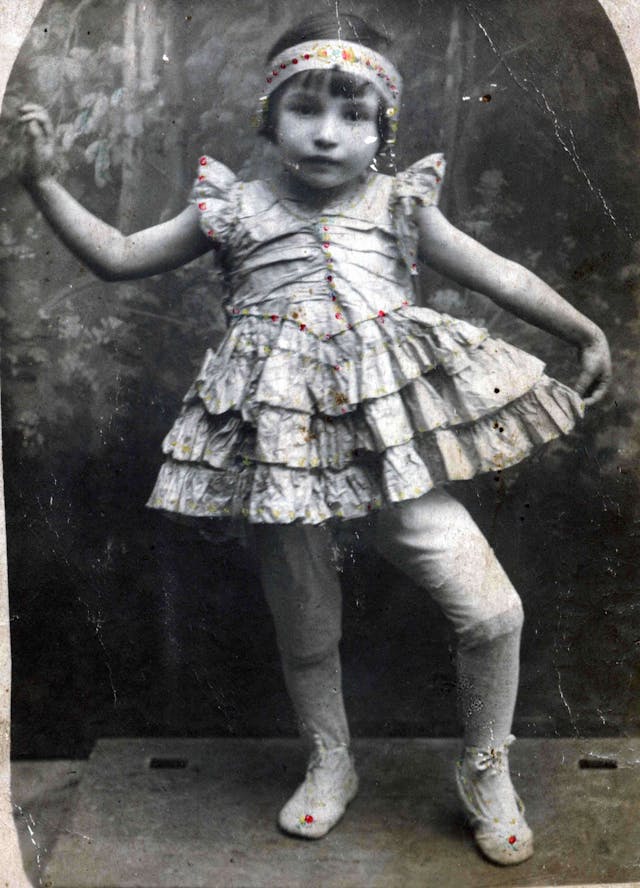
Baby Pisetskaya
Photo taken in: Uman, 1925 Interviewer: Ada Goldferb
Chaya Meyerson (nee Pisetskaya), my father’s youngest sister. Chaya finished a lower secondary school then married Israel Meyerson, a Jewish man, in 1936. They had a Jewish wedding with a chuppah. There was a big wedding party. All her brothers and sisters and their families from Kharkiv, Moscow, and Kursk came to her wedding in Odessa. There was even an article about this wedding in a Jewish newspaper. There was even a photo of our family published. Her husband died on the front in 1943.
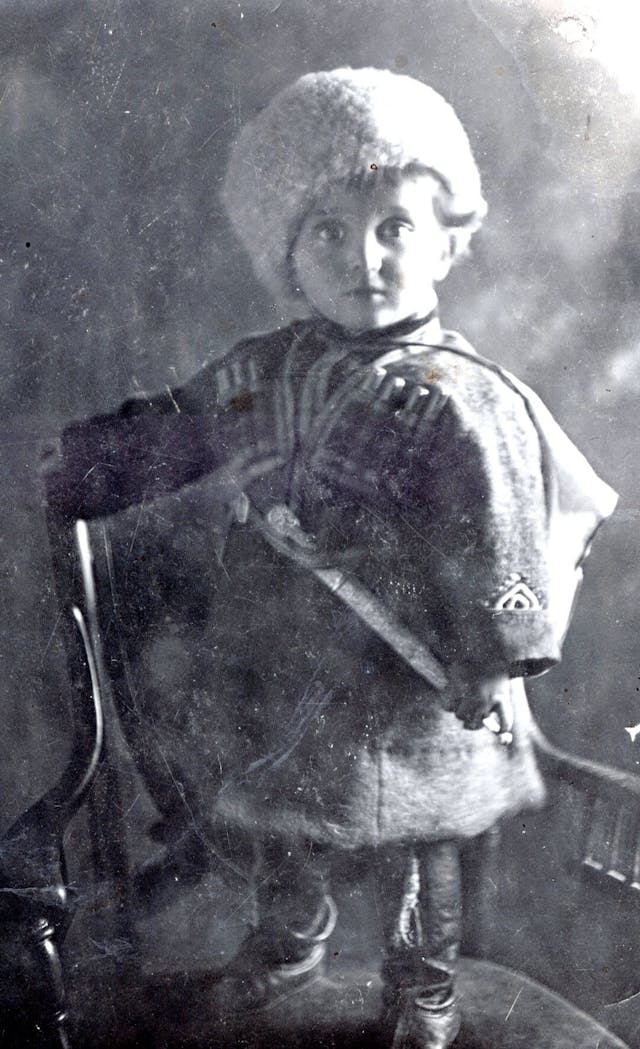
Mark Golub
Photo taken in: Kyiv, 1929 Interviewer: Ella Levitskaya
Me at 18 months old wearing a Georgian costume while our family was on holiday. I was born in Kyiv on 25th April 1928. I was given the name of Mordukh at birth and I have this name written in my documents. I was supposed to go to school in 1935, but I was not admitted because I had not yet reached the age of 8. The next year I was admitted to the second grade of a Russian school not far from our house, and it was free of antisemitism.
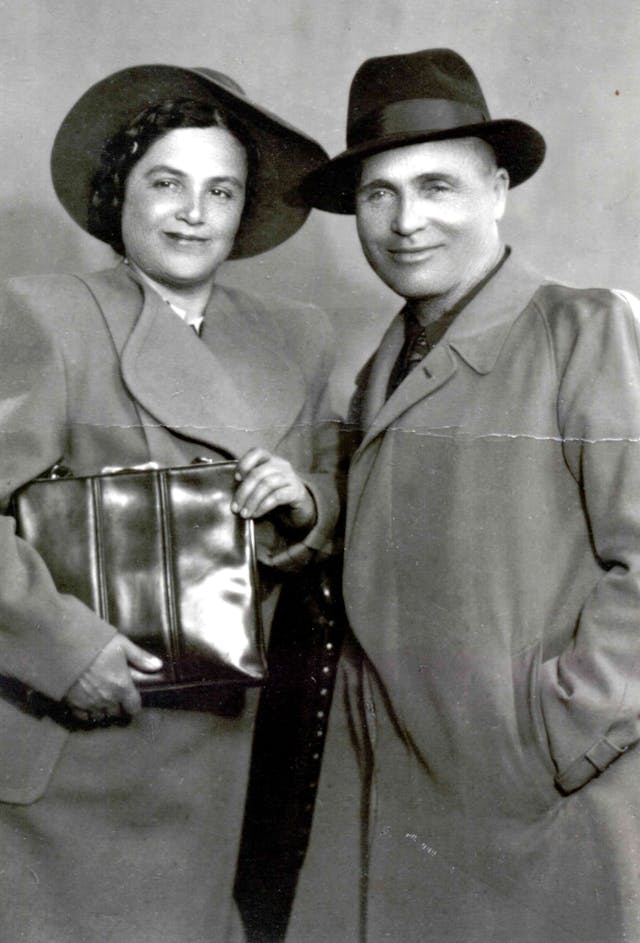
Dora Postrelko
Photo taken in: Kyiv, 1947 Interviewer: Zhanna Litinskaya
My father Aron Gehtmann and his third wife, Lisa, on their wedding day. My father was a very impulsive person; when he liked someone, he poured kisses and gifts onto that person. The problem was that he was too full of love. For that reason he left my mother for a different woman. He often wrote to me, but he only visited from Leningrad two or three times, always bringing gifts. I could not afford to go to see him, but I always wished him well on all holidays. He died in 1968.
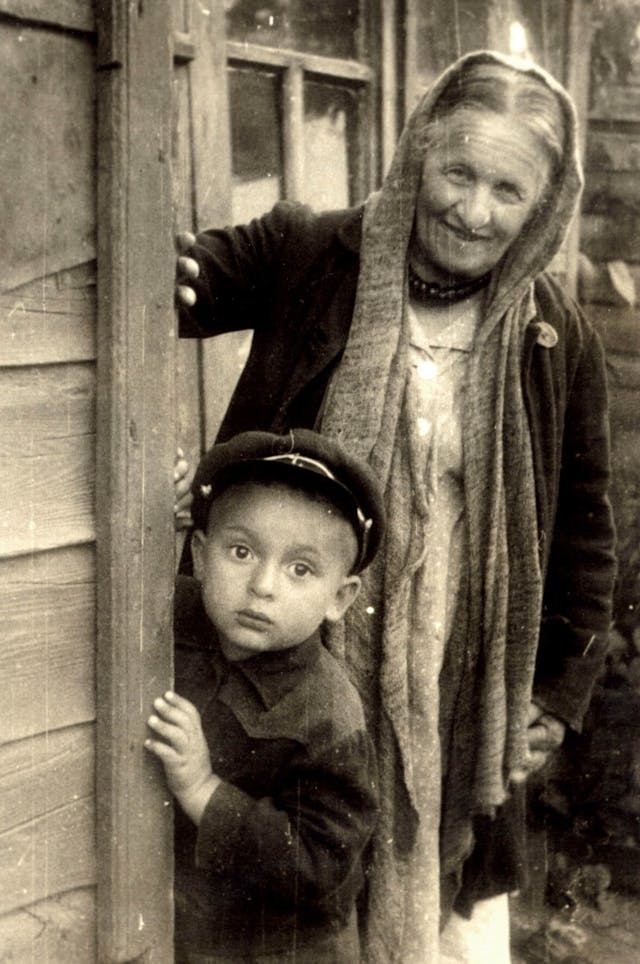
Iosif Shubinsky
Photo taken in: Kyiv, 1952 Interviewer: Ella Orlikova
My mother, Etl Shubinskaya, with my son Boris. For a long time after the war, I knew nothing about my parents. Later I learned that my parents evacuated from Kyiv. They left on their own without any organization. I knew they had a difficult time at different evacuation destinations. I looked for them for a long time. Only in 1943 was I informed that my parents were in Kazakhstan, where my wife had also gone. My father died there.
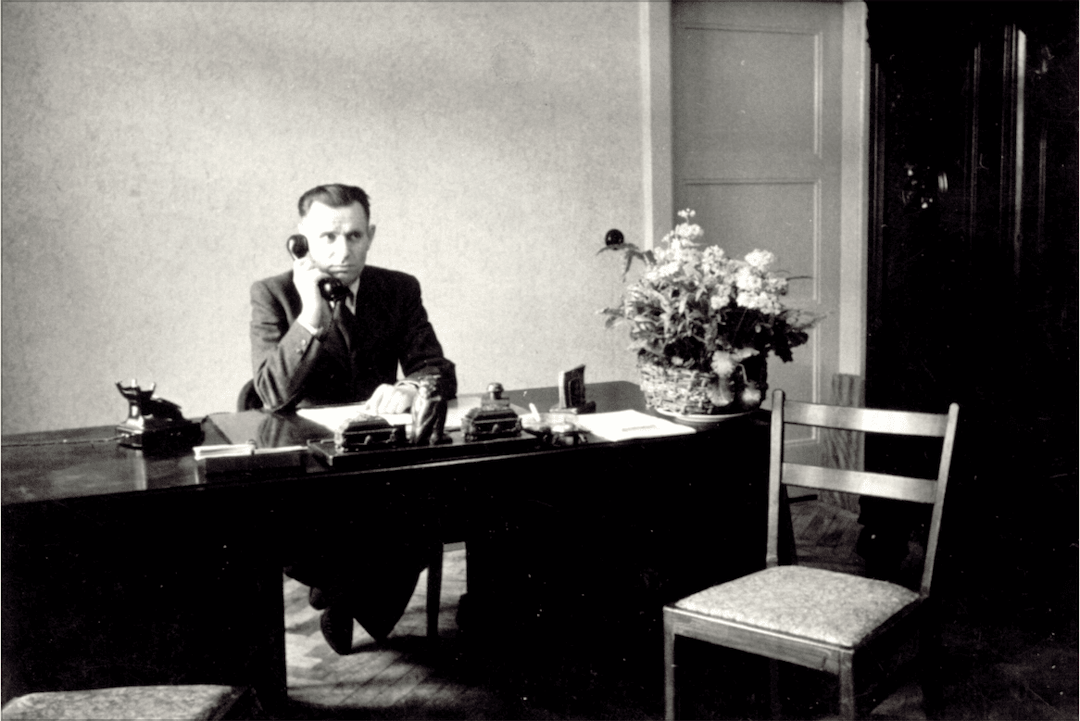
Grigoriy Stel’makh
Photo taken in: Kyiv, 1947 Interviewer: Zhanna Litinskaya
My father Isaac Stel’makh in his office in the military administration in Berlin. This photo was taken to send it to the family in Kyiv. My father was the product of his epoch. He went to cheder like all Jewish boys and then finished a Jewish school. Then... I would say he was drawn in with the ‘wheel of history.’ He left his home at the age of 14. He headed to Kamyanets-Podilskyi, 100 km west of his home where he joined the Komsomol and became a Komsomol activist.
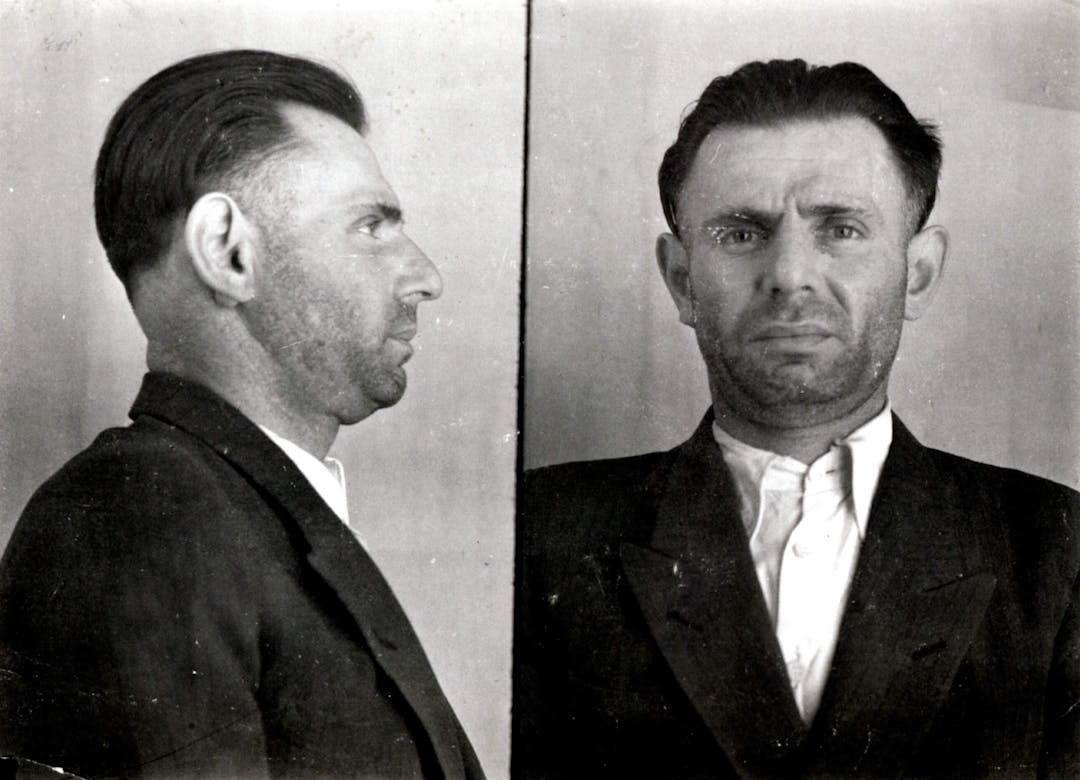
Grigoriy Stel’makh
Photo taken in: Berlin, 1956
My father, Isaak Stel’makh, in jail. In 1945 he reached Berlin. After the victory, my father was assigned to the Soviet Military Administration of the city. On 20 January 1949, state security officers came to his office and asked him to follow them. He was arrested under article 58, item 10: anti-Soviet agitation and propaganda. He was taken to a prison in Berlin. For ten months he underwent interrogation, including torture, before he was sentenced to 10 years in prison.
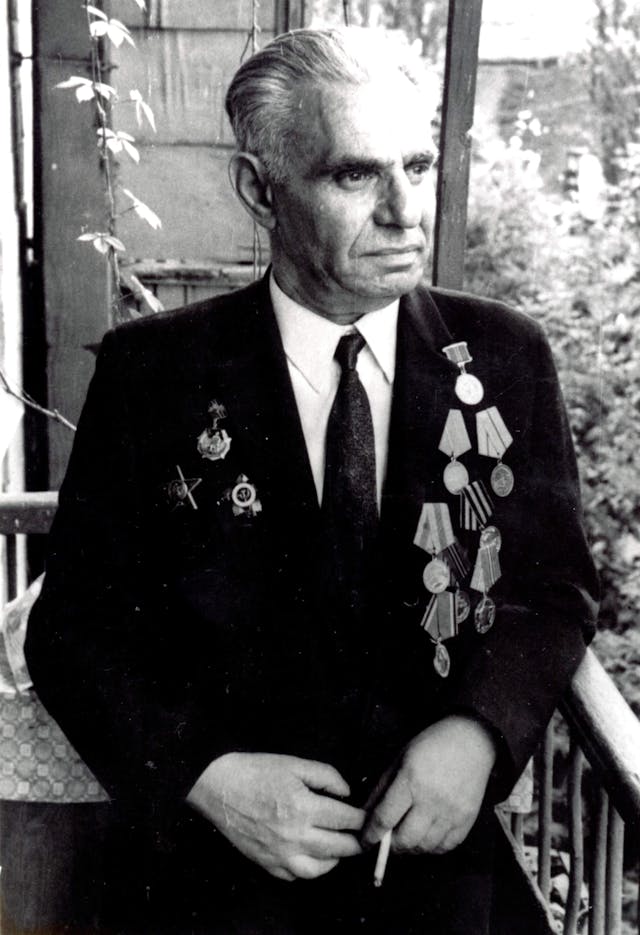
Grigoriy Stel’makh
Photo taken in: Kyiv, 1962
I took this photograph of my father Isaac Stel’makh during the Celebration of Victory Day in Kyiv. There was a big official celebration of Victory Day in 1962. It was always the best holiday for my father. On 14 August 1956, the Military Collegium of the Supreme Court of the USSR reviewed my father’s case and closed it for absence of corpus delicti. After spending several years in prison, my father was rehabilitated.
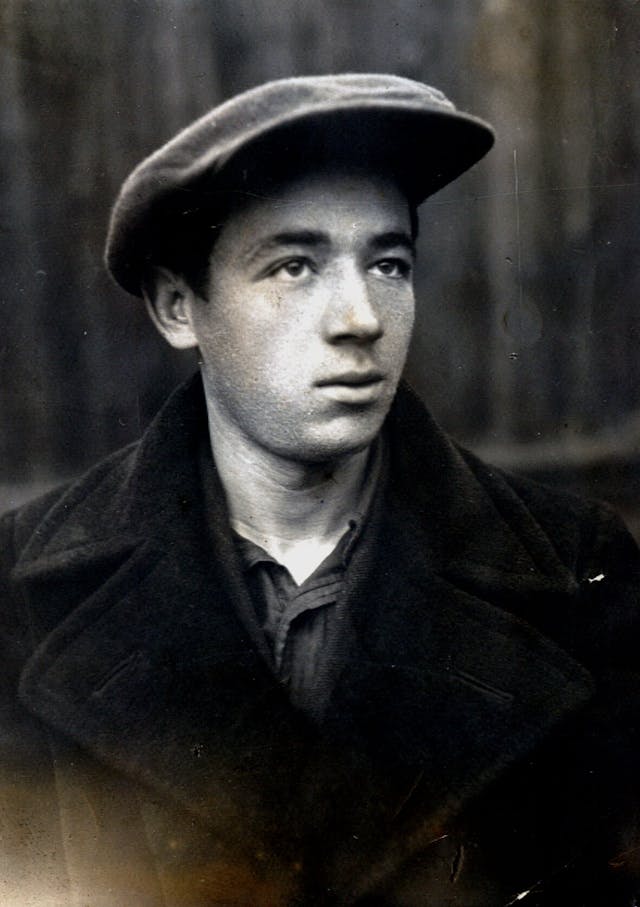
Lilya Finberg
Photo taken in: Kyiv,1936 Interviewer: Tatyana Chayka
My husband, Kushel Finberg, when he was 19, at the factory in Kyiv where he worked. Before we married in 1947 my mentality was Soviet with simply no place for Jewish traditions or faith. The war and the Holocaust radically changed my mind. With my marriage to Kushel, my life began to fill with Jewish traditions and religion again.
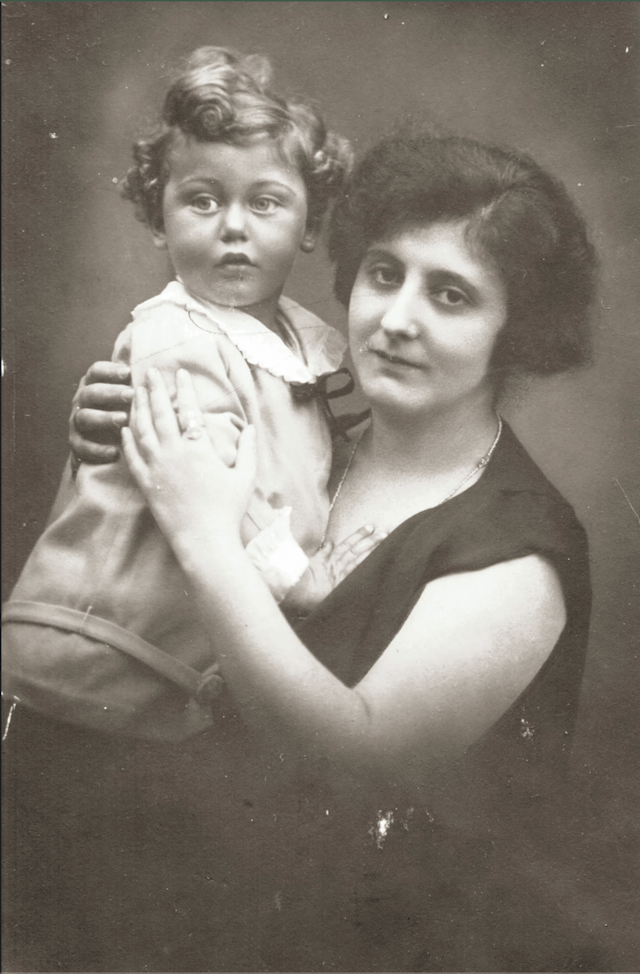
Ruth Greif
Photo taken in: Chernivtsi, 1920s Interviewer: Andreea Laptes
My husband, Carol Ionel Greif, as a baby with his mother Amalia. Carol was a Jew from Chernivtsi. He studied at two universities. He studied languages and chemistry by correspondence at a university in Belgium. I met him in Brasov before I left for university. He was older than me and had quite a reputation with women, but to me he was friendly and he often took me out to the theater, behaved like a gentleman, and joked that when I grew up he would marry me.
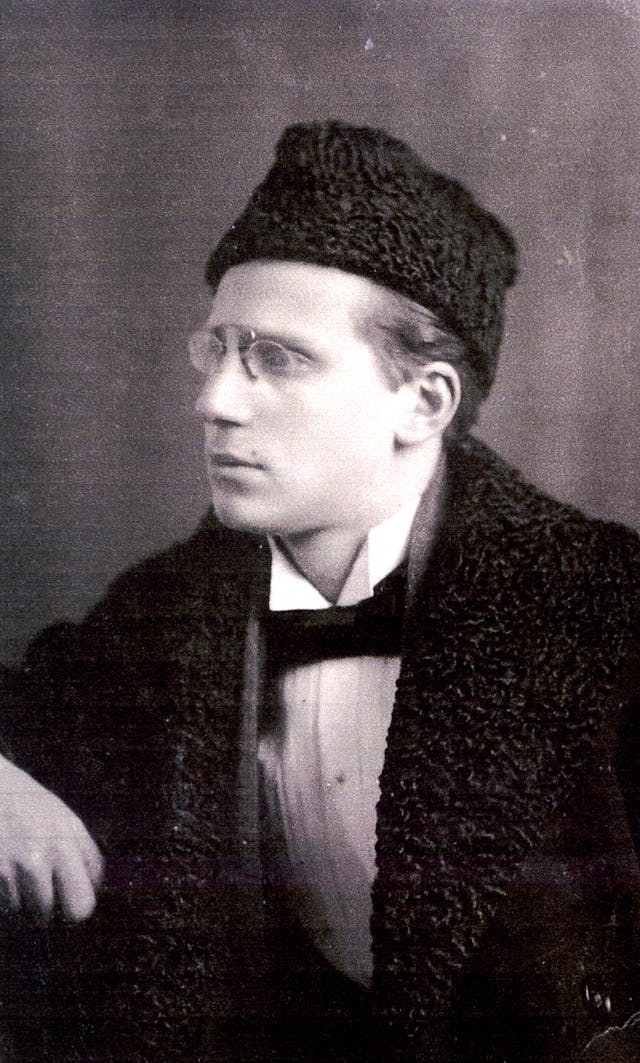
Dimitri Kamyshan
Photo taken in: Kharkiv, 1916 Interviewer: Ella Orlikova
Victor Zilberberg, my father’s brother. My grandparents had six children. Victor was their second child. He was a very handsome man and always dressed very neatly, and he became an actor. He lived alone—his wife left him when he fell ill with asthma. He loved cats and dogs. Many of them would come to his house, and he would give them food. He was called ‘cat man.’ Boys often teased him about his love for cats, but he did not get angry—he just smiled at them. He was a very kind man. He was hanged by the Germans during the war.
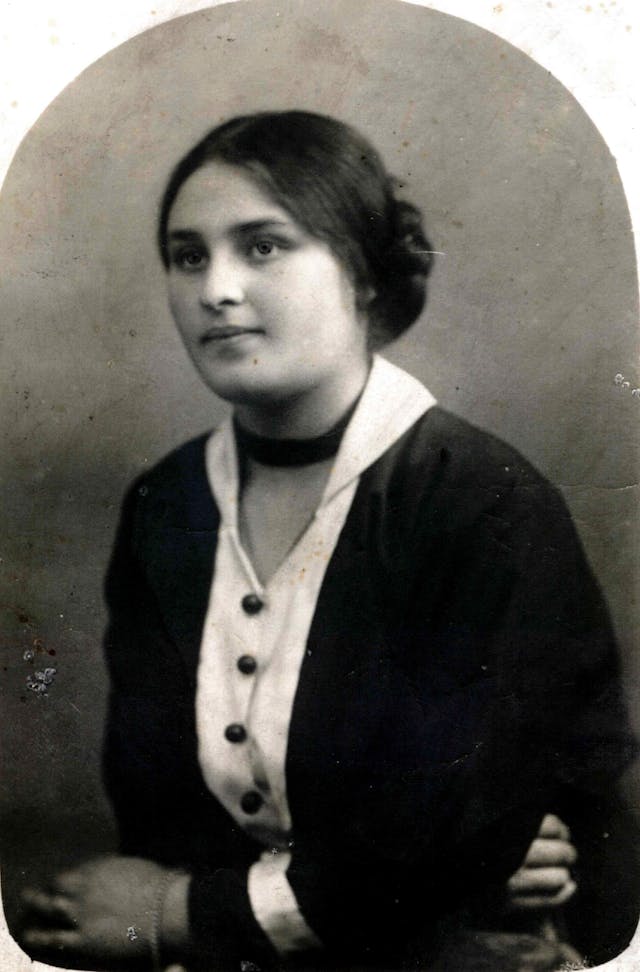
Sima Medved
Photo taken in: Ekaterinoslav (Dnipropetrovsk), 1915 Interviewer: Ella Orlikova
My mother’s daughter from her first marriage, Freida Rivkina, when my father and I went to visit her. My mother’s first husband’s name was Rivkin. Freida was born in 1893. I do not know under what extraordinary circumstances my mother divorced her husband and why the rabbi of Ekaterinoslav gave his approval for the divorce. She did not want to discuss this matter. After my mother died, we lost track of Freida, but we later found out that she perished during the war. We correspond, though, with her son who lives in Israel.
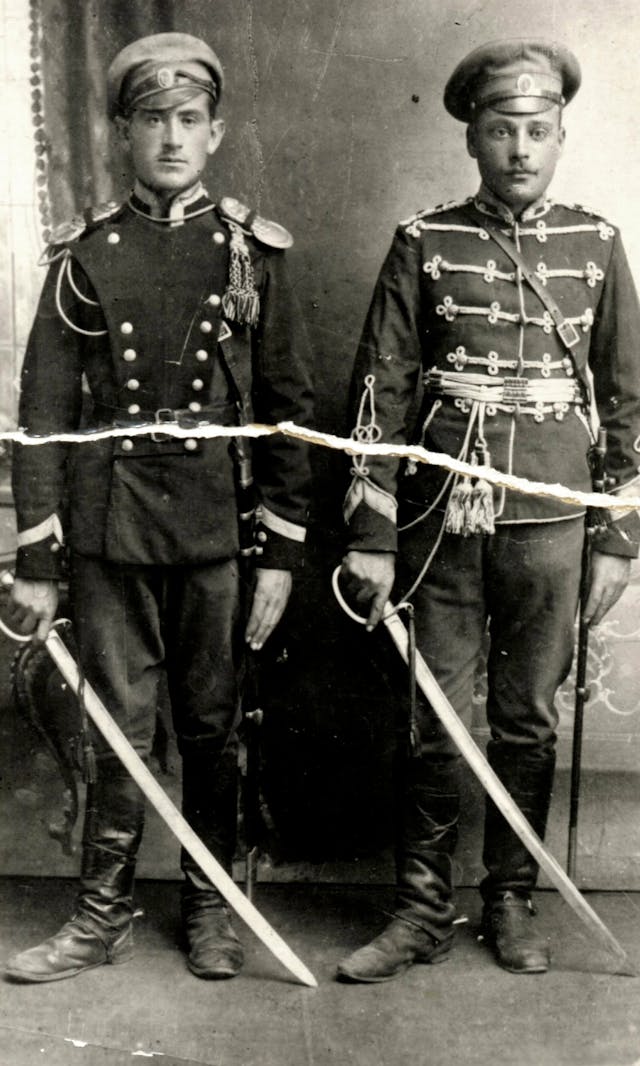
Asia Matveyuk
Photo taken in: Mykolaiv, 1915 Interviewer: Zhanna Litinskaya
On the left is my father Shoilik Leikind and next to him is his friend Solomon Levi. They and their horses were drafted into the tsarist cavalry in 1915. He returned from the war a different person. He became fond of revolutionary ideas, dreaming of a better life and the construction of a communist society. He stopped going to the synagogue, joined the Komsomol, and became the leader of the village poor.